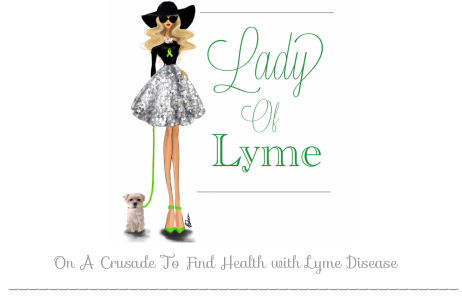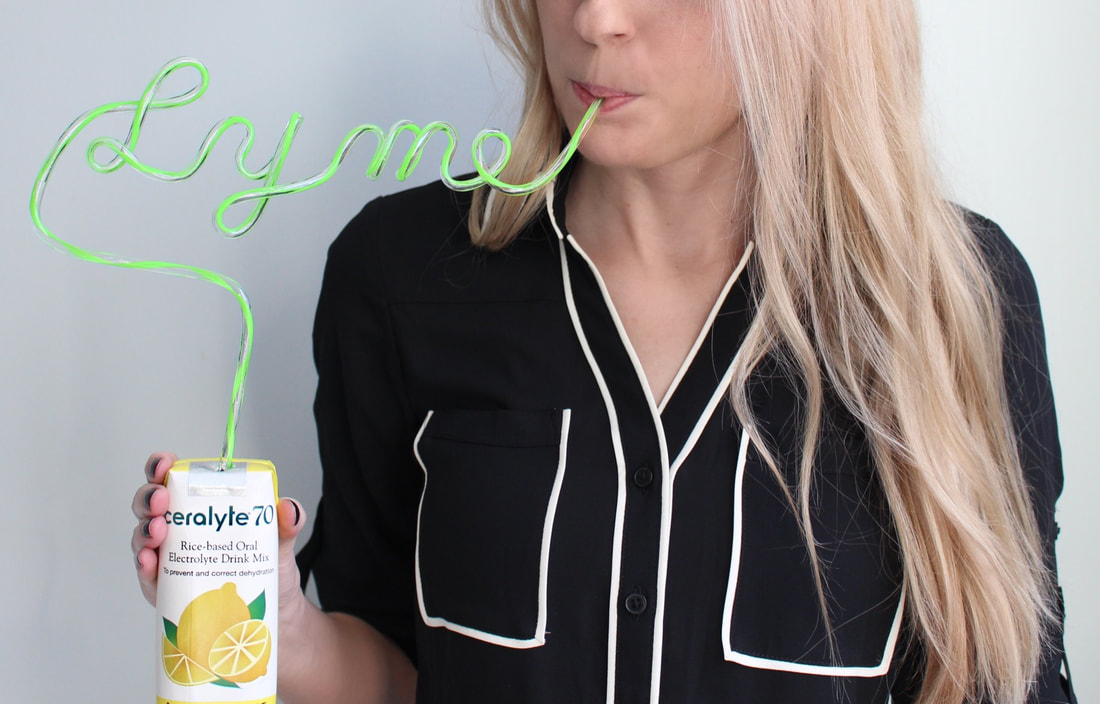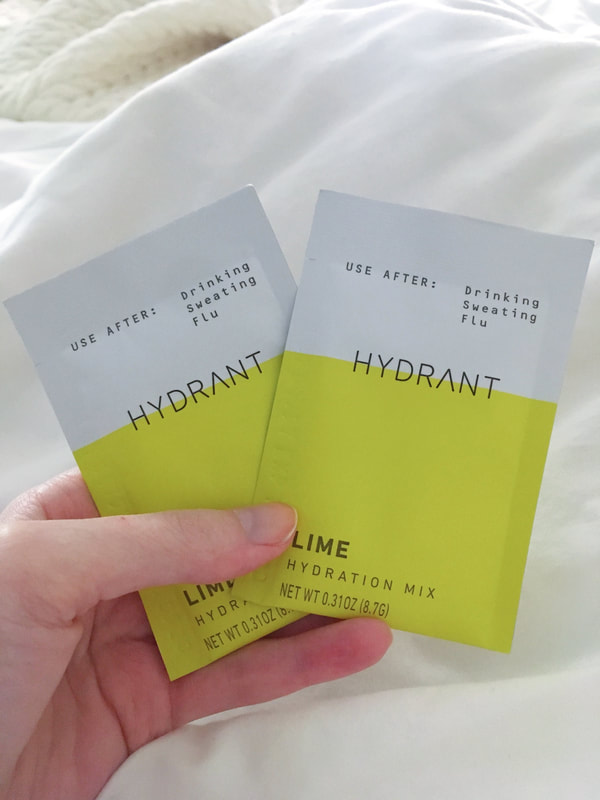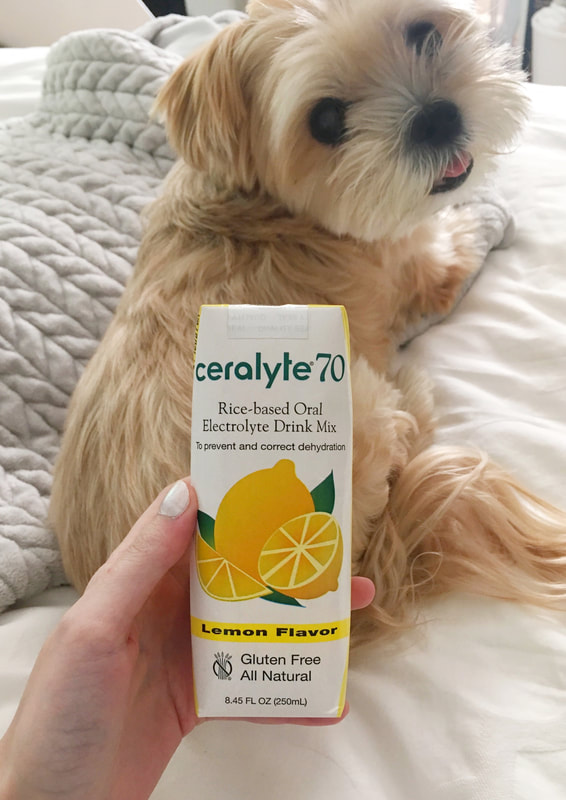So, a bit of a back story about me. It took me 5 years of misdiagnosis to finally learn that I had Lyme disease as the underlying condition for all of my struggles. During that 5 year journey I met a lot of Doctors who were trying to uncover the link to all of my symptoms, and one of these Doctors led me to a diagnosis of POTS (Postural Orthostatic Tachycardia Syndrome). I won't go into the condition in-depth, but you can read more about it here. This condition is a "Syndrome" and that means that it is a presentation of symptoms caused by something, but the cause is unknown. So it wasn't really an end-all be-all diagnosis per se, but rather a clue about what was going on in my body. It was however a very helpful piece of information for me, because there are some medications you can take to control POTS. My goal at the time was symptom relief, because life had become very grueling while I was in college. POTS is a dysfunction of the autonomic nervous system, which is what controls your heart and how it pumps blood throughout the body. For example, when I stood up I always felt faint and had to pause to catch my breath and my heart was constantly racing trying to keep me up right, etc. There is a lot more to POTS, but for the basis of this post I will keep it very surface level.
Many of the things one can do to ease the symptoms of POTS are: drinking more water, eating more salt to raise sodium levels, wearing compression stockings, strengthening the legs so it pumps blood to the heart more efficiently, and prescription medications such as Midodrine (which was a life saver for me at the time). I did everything imaginable that one can do to help POTS. I upped my water intake big time, I salted everything heavily, I got prescription compression socks, I got prescription medications, and I enrolled into an up and coming study at the time for POTS patients. I saw Doctors who specialize in POTS in Kentucky, and also all the way across the country in California. I really believed if I just found the best of the best to help me then I would somehow be fixed. While I found experts in this field (at the time POTS was a very niche diagnosis and not very well known), I still got the same general advice as listed above about staying hydrated, except one Doctor suggested I drink electrolytes too. Still, nothing really solved all my problems, and I was receiving IV's to try and pick me back up when dehydration was constantly creeping in. In fact, I have needed hundreds of such IV's over the years due to POTS which was later complicated by a Crohn's disease diagnosis.
My past history is relevant because I feel like those who are diagnosed with POTS get the most tips about hydration, but in my opinion it is still very lacking. Even with Lyme Disease, your body uses up a lot of magnesium & potassium and yet there’s minor information highlighting the importance of drinking electrolytes. In comparison, with Crohn's disease there is even less information or open discussion surrounding dehydration. I don't think I have had one conversation about that topic with any medical expert regarding Crohn's disease and that truly baffles me considering an active Crohn's flare depletes a lot of electrolytes and fluid. With all the conditions I have been told I had, the only one that got any emphasis on "staying properly hydrated" was POTS and even that was lacking. For one, not all electrolytes are created equally, and furthermore drinking your run of the mill electrolytes is not enough when you are losing lots of fluids day in and day out for long periods of time. I would say the topic of fluid loss is perhaps most relevant for those with IBD's or IBS, but it also goes for patients going through cancer treatment, or any other chronic illness where loss of fluids is applicable. For me, the fact that I had underlying Lyme/POTS complicated the issue tenfold. Not only was I already someone who struggled to stay hydrated without Crohn's, but once that came into the picture it left me incredibly reliant on IV hydration and my veins were taking a beating.
Now I have seen my fair share of advertising on social media about various electrolyte brands who promise to be the very best on the market. And I have done a lot of research looking for electrolytes that aren't full of fillers, corn syrup, corn glucose, or loads of sugar. Time and time again I have only landed upon a few which fit the bill, and I used to think they were the best I could get. I should note that while I drank electrolytes daily for years on end, my potassium, magnesium and chloride were always at the rock bottom of the scale. I could not understand how on earth that was possible, but I chalked it up to a common POTS problem and quite frankly I never though that much about it.
It wasn't until recently that I had been in the worst and longest Crohn's flare to date that no matter how much I drank my electrolytes, I was still showing symptoms of dehydration. With each passing day of my flare I was going further and further down the rabbit hole. I could not understand how I was drinking two liters (or more) of water and electrolytes and yet I still felt very dizzy when I stood up, my heart was acting up, I would tremble if I exerted myself too much, my hands were ice cold all the time, and I could barely stand for 2 minute without almost fainting. Those symptoms lasted for weeks and were growing worse with each passing day. I was really starting to worry, and I thought I had something seriously wrong. Remember, I was drinking loads of electrolytes every day, so it did not dawn on me that I could actually be dehydrated even though my symptoms all seemed to fit.
Everything came to a head recently when I had what I consider one of the most terrifying nights of my life. For about 48 hours prior I developed a lower pulse, a thudding heart, shortness of breath, chest pain/tightness, and when I stood up (even very slowly) my heart felt like it would explode out of my chest. I thought maybe I was developing pericarditis again, so I tried not to worry too much because my pulse ox looked okay. Fast forward to the night in question and things started to deteriorate quickly. My heart rate did this thing where it was very low (50's, which is super low for me), and then shoot up to the 120+ range and then drop back down again. This would happen very quickly, within 2 minutes total. Then, it happened again, and again, and again, finally hitting over 135 while lying down and climbing higher. My pulse ox meter got so high it couldn't even go any higher. I reached the top threshold that it was able to measure so I can't even tell you what the highest number was that I got to. When I put my hand on my wrist to feel my pulse it was going to fast I couldn't even count the beats. Listen, I understand that to someone out there these numbers might be no big deal, but for my body and for what my heart rate and blood pressure typically is, it was astronomical. Not just that, but the actual bodily sensation of my heart beating this fast was the scariest thing I have ever felt. My head was cloudy, I could barely speak, parts of my body felt numb, and I genuinely thought my heart might stop all together. No I am not being dramatic, when this happened I was alone and I could barely grab my phone to call my mom so I did not know what to do, which way to turn, and I've never felt anything like that in my life.
At that point we sprung into action because it was obvious something is seriously wrong. I will spare you all the step by step details here, but the crucial things like a blood clot were the first to be ruled out (thank God). Judging by my CBC it looked like I was dehydrated, but I couldn't grasp how that was possible. This my friends, is when I learned the lesson that I have finally came here to share to you all today: Volume depletion and dehydration are two totally separate things.
One more time: Volume depletion and dehydration are two totally separate things.
You can be drinking plenty of water and not be technically 'dehydrated' by the definition, but you can be severely volume depleted and have very similar symptoms. Volume depletion, or extracellular fluid volume contraction (ECF) occurs as a result of a loss of sodium. It comes from your typical suspects such as diarrhea, vomiting, excessive sweating, diuretics, kidney failure etc. Because water crosses plasma membranes in the body via something called 'passive osmosis,' a loss of sodium quickly results in water loss in your cells (extracellularly). Basically, a loss of sodium always causes a loss of water in the body, especially on a cellular level. This is why POTS patients are told to eat so much salt, with the theory that more sodium means more water in the body. The main gist here is that every cell in your body needs water to survive, and when you lose sodium the water gets sucked out of those cellular spaces and your overall circulating volume decreases. When you simply drink water it takes a lot of time and work for that water to actually get INTO your cells. It first has to go into your stomach, and using osmosis it must be taken up and distributed into your cells. But not all of the water gets soaked up (ill explain more on that later), which is why when you drink a lot of water at once you will usually have to pee really soon after. Most of it passes right through you. That's why severely dehydrated patients are given an IV because that goes directly into the blood and into the cells that desperately need it.
Volume depletion is referring to the water that is actively in the cells. You can drink loads of water orally and yet if it can't get into the cells you will still be volume depleted. How is that possible? I'm glad you asked. If you look at any electrolyte drink on the market today you will notice that they all contain sodium and then some kind of sugar (glucose). In the past I actually wanted completely sugar free electrolytes, and honestly those are as good as useless and I'll explain why. Glucose is needed to increase the absorption of sodium in your intestines. This discovery that sodium transport and glucose transport come together in the small intestine to accelerate the absorption of water was a huge discovery that changed the way we rehydrate the human body. However, this balance of sodium and glucose is very specific. Just having any ole amount of sodium and glucose in an electrolyte drink is not going to be enough. In fact many drinks like Gatorade that are loaded with sugar will only dehydrate a person more, because your body doesn't know what to do with all that sugar and the gut can't absorb electrolytes if there is too much sugar. This is a very crucial balance.
From rehydrate.org
"Glucose enhances sodium, and secondarily, water transport across the mucosa of the upper intestine. For optimal absorption, the composition of the rehydration solution is critical. The amount of fluid absorbed depends on three factors: the concentration of sodium, the concentration of glucose and the osmolarity of the luminal fluid. Maximal water uptake occurs with a sodium concentration from 40 to 90 mmol/L, a glucose concentration from 110 to 140 mmol/L (2.0 to 2.5 g/100 mL) and an osmolarity of about 290 mOsm/L, the osmolarity of body fluids. Increasing the sodium beyond 90 mmol/L may result in hypernatremia; increasing the glucose concentration beyond 200 mOsm/L, by increasing the osmolarity of the solution, may result in a net loss of water. CHO to Na ratio should not exceed 2:1 in these solutions."
Basic electrolyte drinks do not follow these standards or have these properties. They simply do not. So it is questionable how much of the actual electrolytes in the drink are even being properly absorbed. This is when I was led to information on Oral Rehydration Solutions (or ORS for short). ORS is a solution that was discovered and is used by the World Health Organization and the Military to rehydrate people who do not have access to an IV but are severely depleted. They use them in developing countries which face diseases like cholera or dysentery or out in combat zones because they are able to rehydrate as well as an IV. There are strict guidelines for what kinds of drinks can call themselves an ORS, because it must have a specific osmolality and sodium to glucose ratio (as discussed above). Do not be fooled by some brands who call themselves "Oral Electrolyte Solutions" to try and sound similar, because that is not the same thing. Oral Rehydration Solutions must meet certain criteria to get that qualification. These solutions force the electrolytes like sodium, potassium, magnesium, chloride to all be absorbed in the stomach along with the water itself which can then get into the cells that desperately need them. Remember, if the sodium can not get into the cells then the water can not get into the cells, period. This is why you can be drinking loads of the wrong electrolytes and loads of water and still have issues with volume depletion and be symptomatic.
When I got my hands on an Oral Rehydration Solution, the difference was shocking. When I would typically drink my electrolytes/water it all went straight through me, but when I drank a liter of ORS I didn't go to the bathroom for hours and hours. That's because it actually got absorbed, and the change was incredibly noticeable. I used two packets in 16oz of water per day, and by day 2 I felt like a different human being. Drinking an ORS feels genuinely comparable to when I would get a lactated ringer IV in the past. I can't help but think how many veins I could have saved had I known this information sooner. While yes, there were still some times when I couldn't physically get water down and I needed an IV (and might still need that), there were other times when I needed an IV because my standard electrolytes just weren't quite enough.
You might ask yourself why standard electrolyte brands don't just fix their ratios and get the official ORS qualification. And the answer to that comes down to money. It's pricey to create these solutions that are perfectly balanced and pass the test to become ORS. You are looking at about $2.50 per packet of ORS compared to maybe $0.50 a stick of basic electrolyte powders. Other times companies don't want to go through the work because for most average people a simple electrolyte works just fine. It's really a much smaller population who have medical conditions that force them to seek out a more potent form of hydration. You will need this more potent ORS if you are someone with a chronic illness that warrants it, someone who loses a lot of fluid and electrolytes on a regular basis due to a medical condition, or the elderly who fall into the trap of dehydration very easily. The scope of where ORS was primarily used and focused was in developing countries or in the military and other places that it was a necessity. That left the market for ORS in the United States pretty small, and thus very few people actually know it exists, where to get it, or why it is superior.
The WHO and Red Cross use a very standard Oral Rehydration Mix which comes in a packet and tastes pretty bland. It gets the job done in developing countries, but as I was reading about the WHO brand of ORS I came across some journals and studies discussing the differences between Polymer based ORS and basic ORS, and which was superior. Polymer based ORS are those who have a base such as rice, or another short chain polymer. These studies were looking to see if a short chain polymer would increase the rate of absorption in the intestines. Specifically, they were looking to see if they could make absorption noticeable better. This study by the NIH looked at 4,284 participants and compared those who used P-ORS and those who used standard ORS, and came to the conclusion that Polymer based ORS was superior. Another study echoed those sentiments by saying that Polymer based ORS had a better recovery rate by day 3, shorter duration of diarrhea, less ORS solution use, less stool output, and better rehydration.
This information is important, because if you go out onto the great worldwide web and look for classic Oral Rehydration Solutions you will find a few. The trouble I found with 90% of them is that they contain either corn based glucose, maltodextrin (also from corn) or Sucralose instead of just classic cane sugar glucose. I only found one that was very pure and only used cane sugar, lime juice powder, and the needed sodium, potassium, magnesium etc and it's called Hydrant. Right off the jump this was my pick, and it is genuinely great. I would recommend Hydrant in a heartbeat if you want a classic ORS that will work great and not be full of useless junk. But, as I learned about polymer based ORS I realized that I was still missing out on having the best of the best and I was on a mission to get it. And let me tell you, it is not easy to find it online. It took a lot of digging to finally find the one single company that sells to average consumers. Polymer based ORS is not something you just find floating around out there, and I actually found 2 others who only sell to healthcare facilities strictly.
Before I go any further you should know I am not sponsored by any of the companies I have discussed. I am not being paid by them to write this, and I never got anything for free or in return for doing a write up. I researched all of this information by myself tirelessly, and bought everything with my own money.
The only company I found who creates polymer (rice) based ORS is called Cera, and they are actually the official supplier of ORS for the United States Air Force. In the early 2000's their Ceralyte 70 drink was put to the test by the Uniformed Services University and the researchers at Ft Detrick, Maryland. This P-ORS worked so well, and is so effective, that in 2005 the US Air Force Surgeon General testified before Congress to the efficacy and effectiveness of it, calling for its use. It was put into all United States Air Force IFAKs and pilot SERE kits shortly after. Thankfully Cera decided to create a product that the public can use as well, and this is how I discovered them. Cera has 3 levels of ORS depending on your needs. Their Ceralyte-50 is a lower potency then their Ceralyte-70, but they are both incredible. Then they have the Ceralyte-90 which is for severe cases and only to be used for short periods of time in severe situations. Their formula uses rice as the polymer, and the ingredients are very pure. For example their Lemon Ceralyte-70 bottles contain: water, rice syrup, (sodium, potassium etc), citric acid, citrus flavor, and stevia. Their drinks come in individual sticks as well as pre-cartoned beverages. I prefer the pre-cartoned beverage because it has the best taste and packs a punch in a small container. The Ceralyte-70 has 404mg Sodium and 200mg Potassium per 8oz, compared to two of my favorite old go-to electrolyte drinks which only had 55mg and 100mg of sodium respectively. Not to mention, neither of my old electrolytes had any glucose source. NONE. They only had Stevia. So it didn't matter how much potassium, magnesium or zinc was in either of them, because very little likely ever made its way to cells as evidenced in years of blood work that showed I was depleted.
Okay, that's finally the end! Sorry for the length, but I really sincerely hope that this was informative for those of you who are in the same bus as I am. If you have any further questions please leave them in the comments below, and I will do my best to help! I currently drink both Ceralyte 70 in the cartons and also Hydrant. I add the Hydrant packets to my 16oz water bottle every day because I find that I drink much more fluid in general when it has the ORS in it because I love the taste. Then I also drink an 8oz carton of Cera. Some days if I am having trouble drinking enough (due to tummy troubles) I'll only do the Cera because thats my non negotiable drink, but most days I will do both! Thus far I have been able to keep up and stay well hydrated while in the midst of a Crohn's flare.
xoxo,
Christina




 RSS Feed
RSS Feed